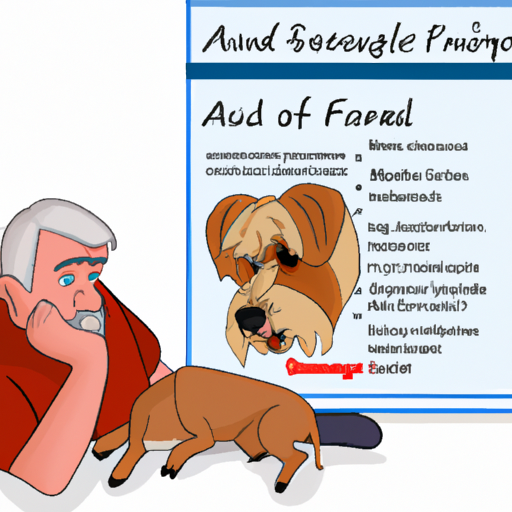As a dedicated caregiver, understanding your dog’s health is paramount. Your canine companion can’t tell you when they’re not feeling well, so it’s up to you to pick up on the signs, particularly when it comes to conditions as serious as congestive heart failure.
1. Understanding Congestive Heart Failure
Congestive heart failure (CHF) is a term that refers to the heart’s inability to pump blood efficiently, leading to a buildup of fluid in the lungs, abdomen, or other body parts. The condition is progressive and chronic, but early detection can make a significant difference in your dog’s quality of life.
2. Recognizing the Symptoms
Identifying CHF in your furry friend can be a challenge, as symptoms may vary based on the stage and severity of the condition. Here are some signs you should look out for:
-
Decreased activity or lethargy: If your dog seems less interested in play, walks, or other activities they usually enjoy, it could be a sign of CHF.
-
Persistent cough or difficulty breathing: A dog with CHF may cough frequently or have trouble catching their breath.
-
Loss of appetite: Changes in eating habits, particularly a reduced appetite, can indicate many health issues, including heart failure.
-
Weight loss or gain: Both sudden weight loss and unexplained weight gain (due to fluid retention) can be symptoms of CHF.
-
Fainting or collapsing: This is a severe symptom that requires immediate veterinary attention.
3. Diagnostic Tests for Congestive Heart Failure
If you notice any of these symptoms, your vet will likely recommend a series of tests to confirm CHF, including:
- Physical examination
- Blood and urine tests
- Chest X-rays
- Electrocardiogram (EKG)
- Echocardiogram
4. Treatment Options
While CHF is a serious diagnosis, there are treatment options available that can help manage your dog’s symptoms and improve their quality of life. These may include:
- Medications: Various drugs can help reduce fluid buildup, strengthen the heart muscle, or control the heart rate.
- Dietary changes: A low-sodium diet can help reduce fluid retention and blood pressure.
- Exercise control: Some activity is beneficial, but it’s important to avoid overexertion in dogs with CHF.
5. How You Can Help
As a caregiver, you play a vital role in your dog’s well-being. Regular vet check-ups, keeping an eye on their behavior, and ensuring they take their prescribed medications and stick to any dietary or exercise recommendations are crucial. It’s also important to provide plenty of love and comfort to your four-legged friend.
Frequently Asked Questions
Q: Can dogs live a long life with CHF?
A: While CHF is a serious condition, with proper treatment and care, many dogs can live a comfortable life for months to years after diagnosis.
Q: Does CHF cause pain in dogs?
A: CHF itself is not typically painful, but symptoms like difficulty breathing can be distressing for your dog.
Q: Can CHF be cured?
A: CHF is a chronic, progressive condition, so it cannot be cured. However, it can be managed with medication, diet, and lifestyle changes.
Remember, early detection and treatment can greatly improve your dog’s quality of life. If you notice any of the symptoms mentioned above, schedule a visit to your vet as soon as possible.



